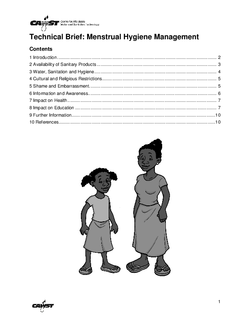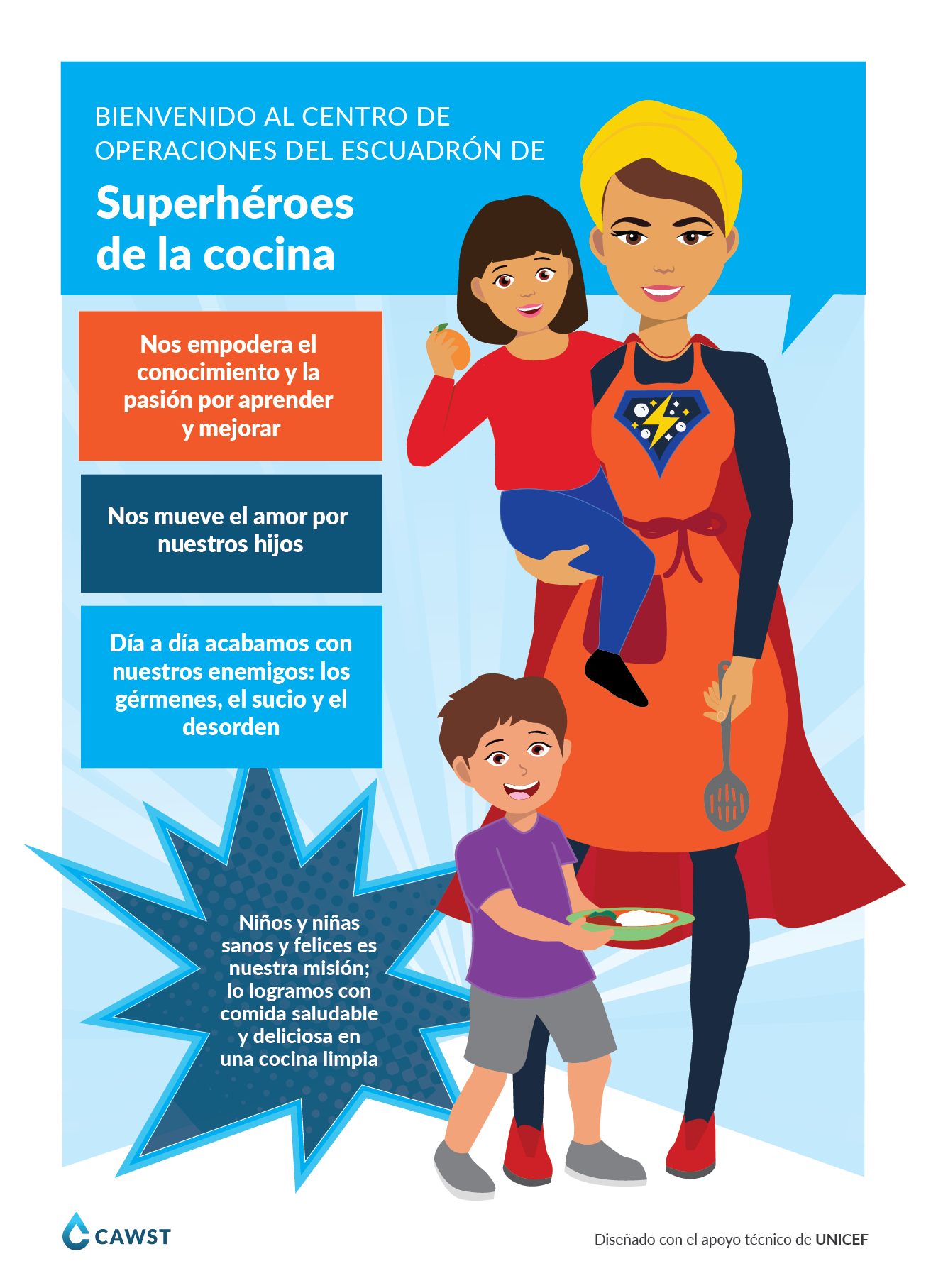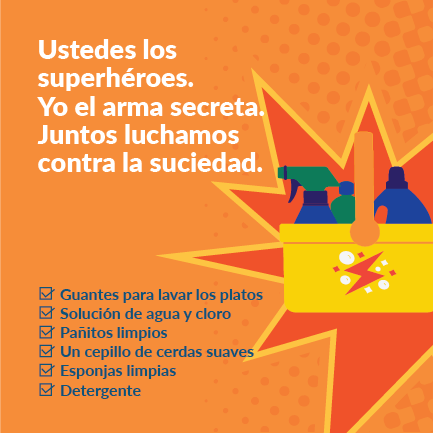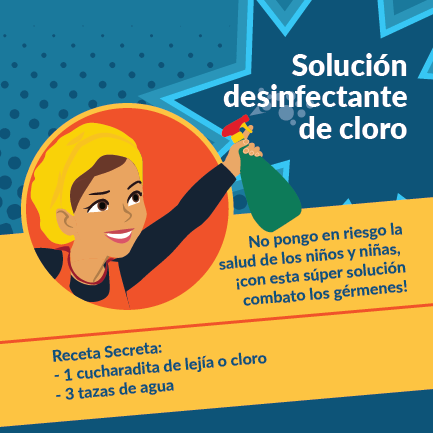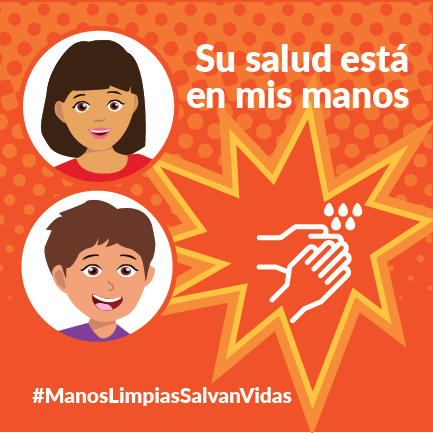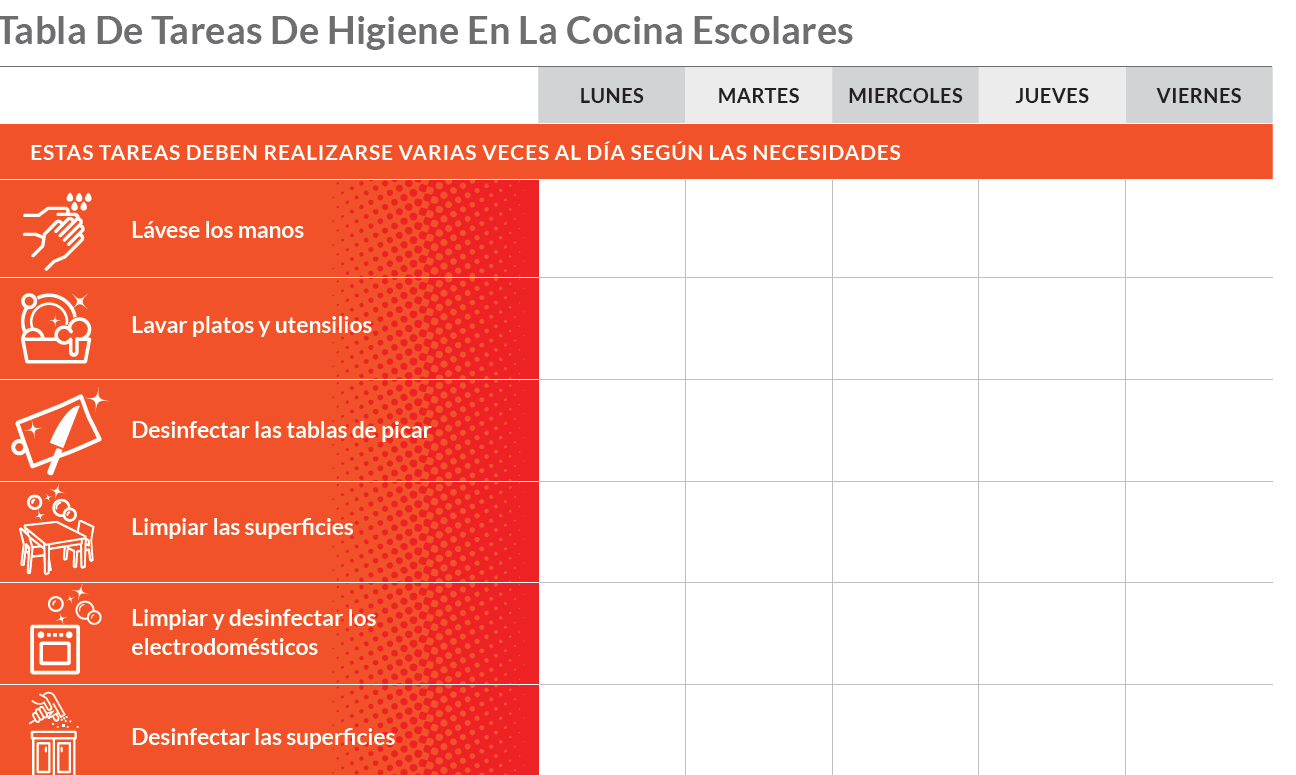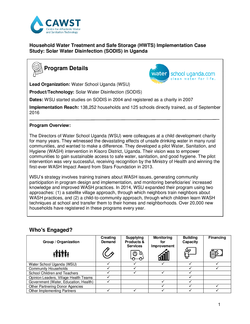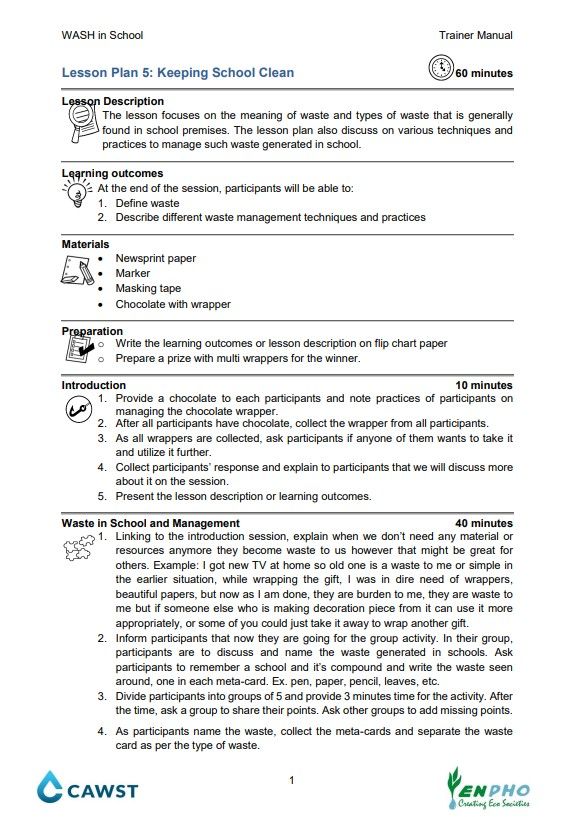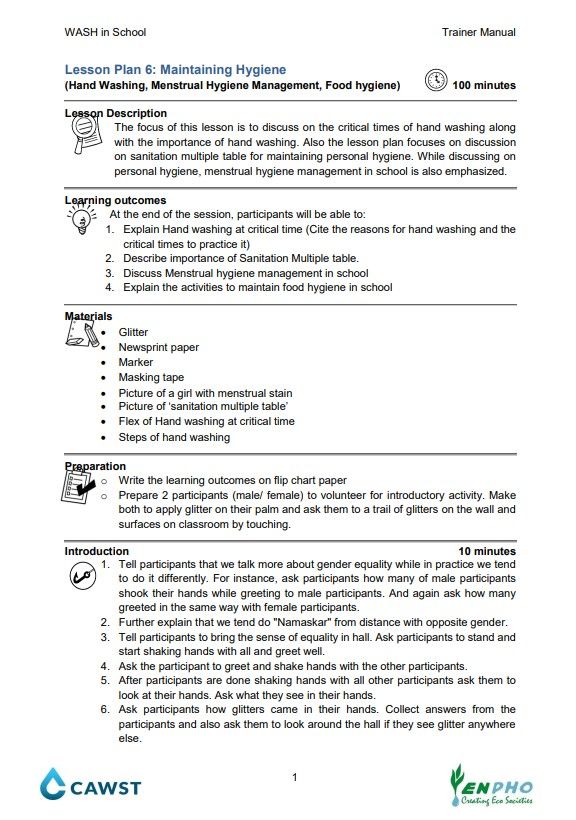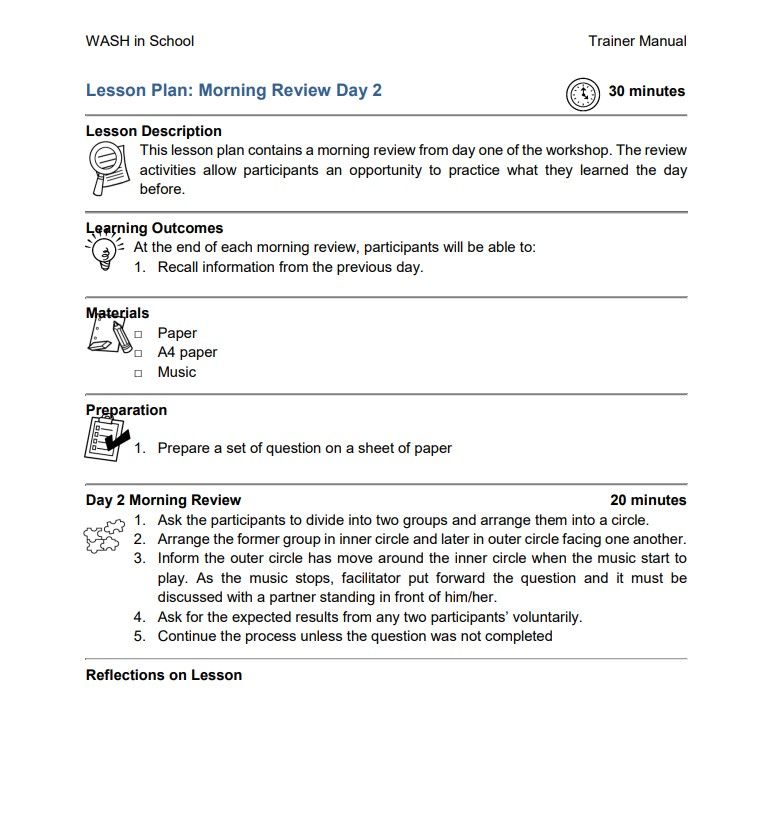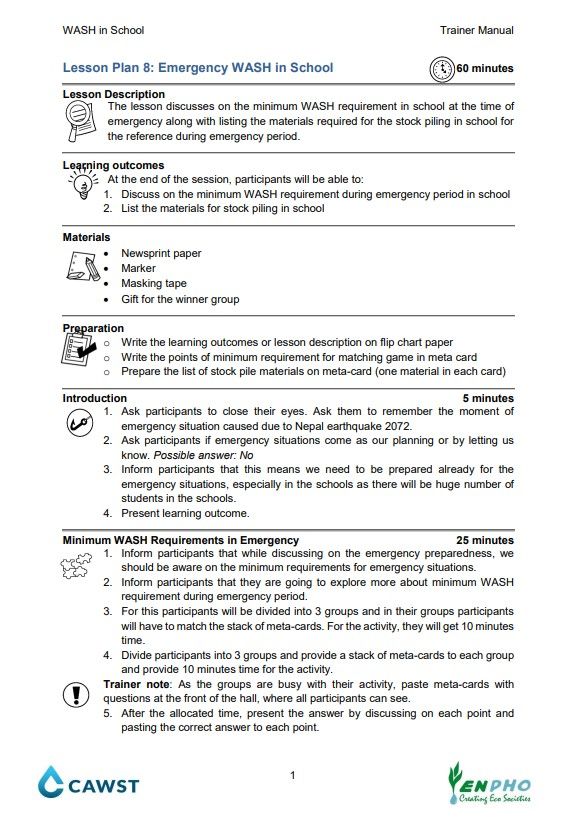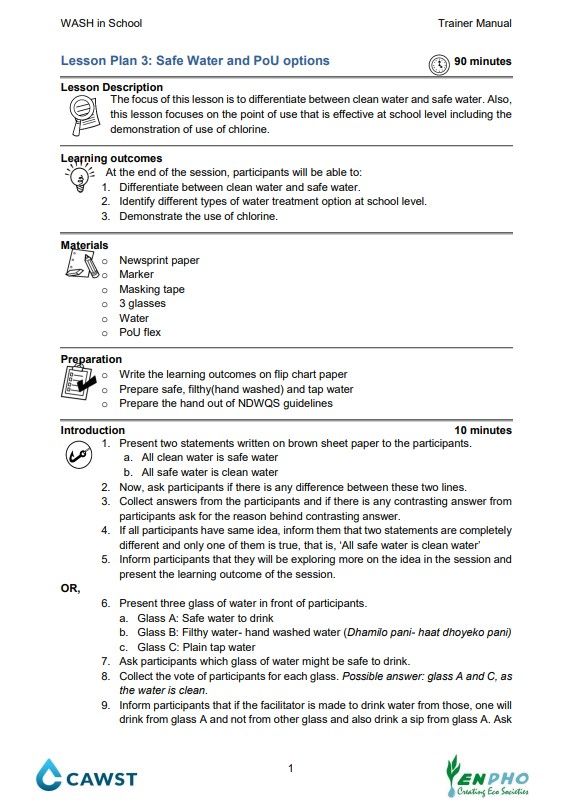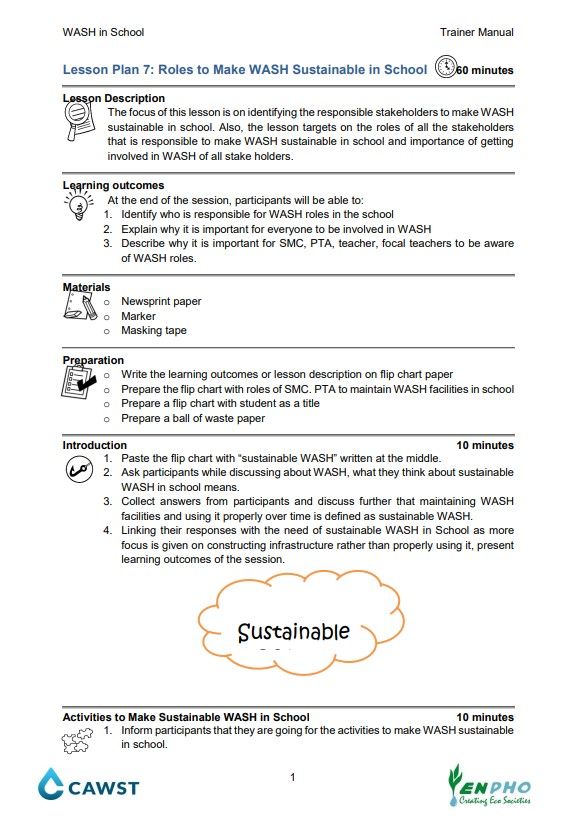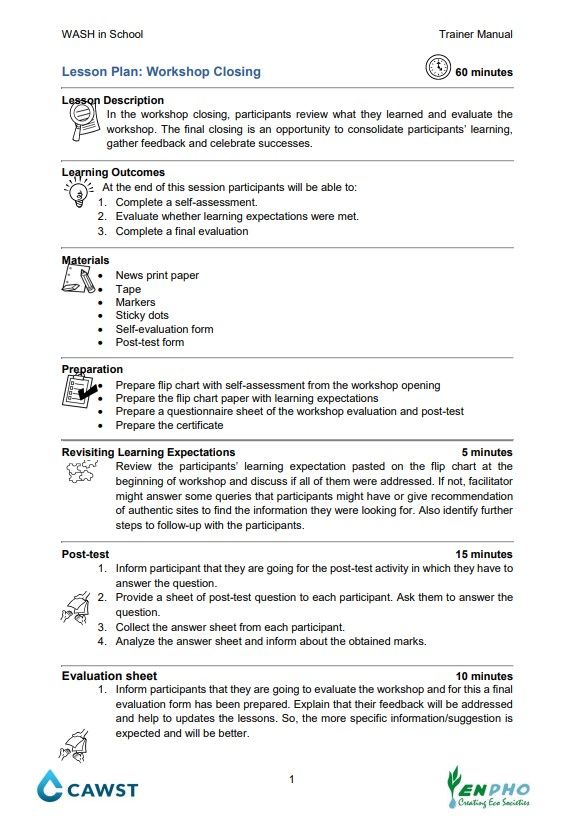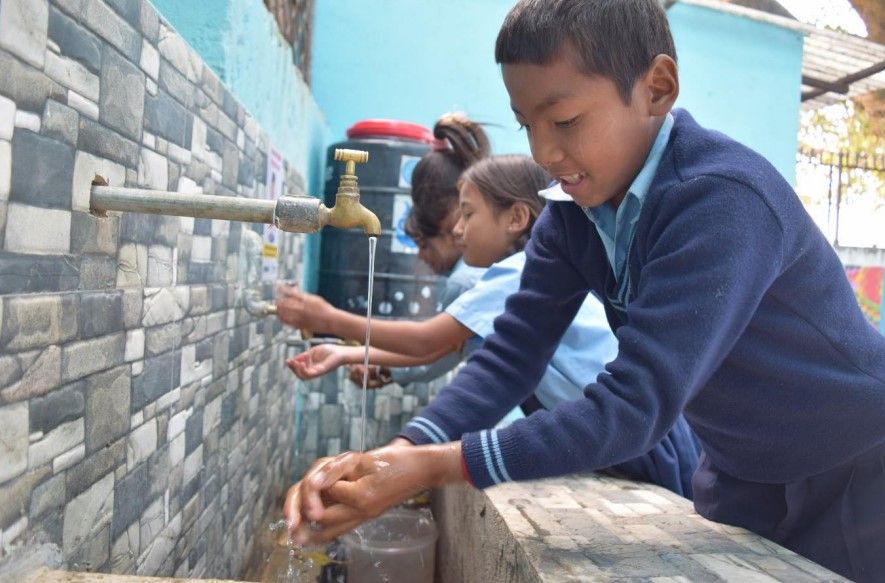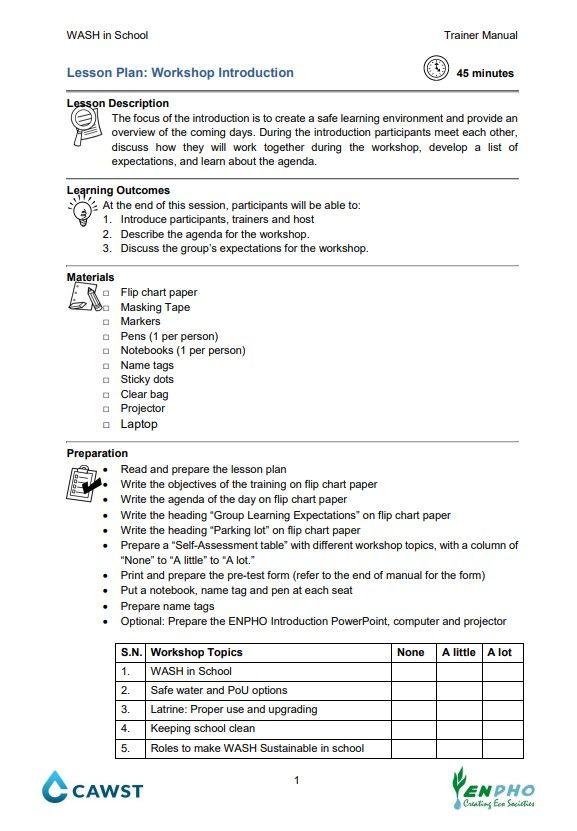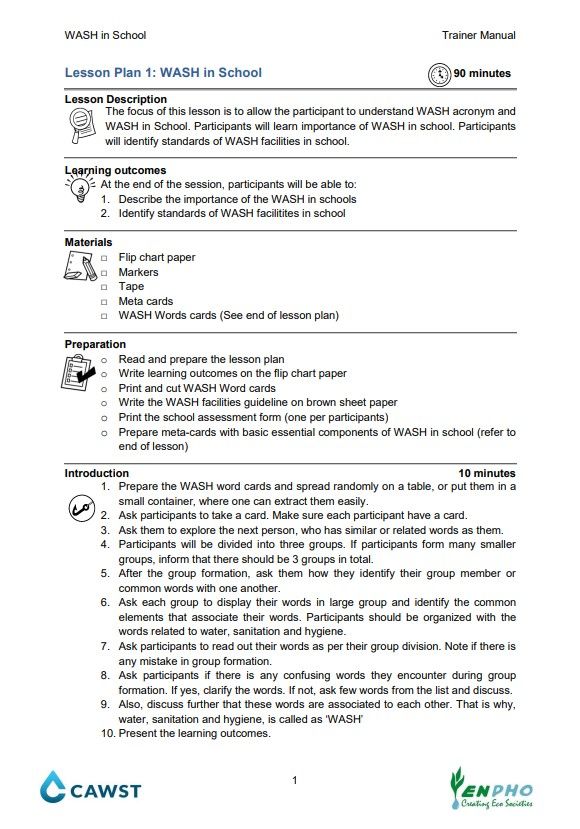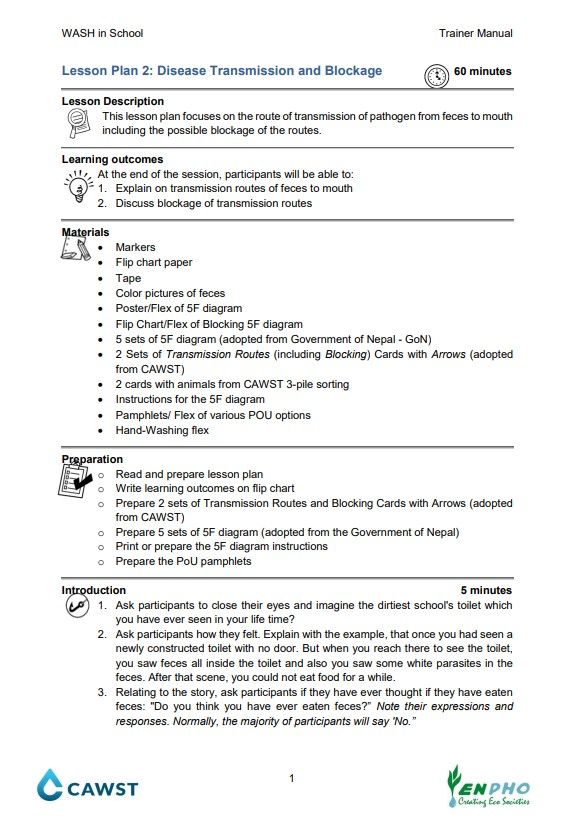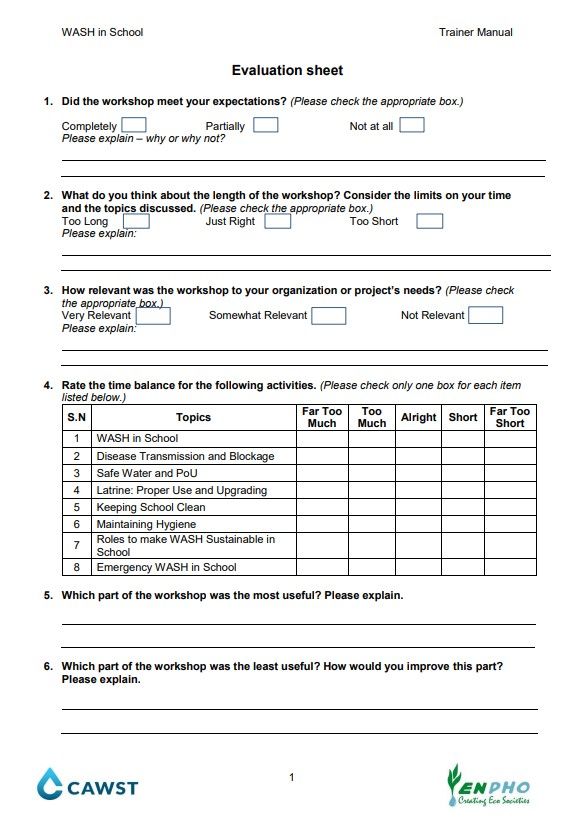Explore WASH in Schools
Healthy Schools Poster (Vertical)
This poster depicts various healthy aspects of a school environment.
Languages
English
Amharic
Healthy Schools Poster (Horizontal)
This poster depicts various healthy aspects of a school setting.
Languages
English
Amharic
Menstrual Hygiene Management
This collection contains the resources for both trainers and participants on menstrual hygiene management. These materials are designed for organizations introducing menstrual hygiene management.
Languages
Spanish
English
French
Khmer
Amharic
Menstrual Hygiene Management Technical Brief
This technical brief describes the variety of sanitary products available, WASH as it relates to menstrual hygiene, cultural and religious restrictions related to menstrual hygiene and the impact it has on health and education.
Languages
Spanish
English
French
Khmer
Implementing MHH Programs through WASH in Schools
This module highlights the importance menstrual health and hygiene (MHH) programs and facilities at schools.
Languages
English
French
Lesson Plan: Hygiene Workshop for Food Processors in School Kitchens
Download this lesson plan and materials to facilitate a 3-hour session with food processors from school kitchens.
Languages
Spanish
English
French
Household Water Treatment and Safe Storage Workshop
This collection contains the resources for both trainers and participants for the Household Water Treatment and Safe Storage workshop. This two to three day workshop provides an introduction to drinking water quality, the Multi-Barrier Approach to safe drinking water, household water treatment and safe storage (HWTS) options, behaviour change, and implementation best practices. The intended participants are people responsible for making decisions about HWTS selection and implementation.
Languages
French
Spanish
English
Arabic
Hindi
Household Water Treatment and Safe Storage Case Studies
Discover how other people run their HWTS projects, what works and what they would change if they could by checking out the following case studies and resources.
Languages
English
French
Spanish
Trainer's guide: Hygiene Workshop for Food Processors in School Kitchens
In this module you will learn how to use the lesson plan and materials to facilitate a 3-hour session with food processors from school kitchens.
Languages
Spanish
Training Toolkit: Hygiene Workshop for Food Processors in School Kitchens
This toolkit contains all the materials necessary to facilitate a workshop with food processors from school kitchens. The objective of the session is to motivate participants to improve cleanliness habits in the kitchen.
Languages
Spanish
English
French
School Kitchen Hygiene Poster: Kitchen Superheroes
Use this poster to promote good hygiene practices in school kitchens.
Languages
Spanish
School Kitchen Hygiene Sticker: Cleaning Kit
One of three stickers to be printed and used as reminders and nudges in school kitchens. This sticker is to be placed on cleaning kits, it lists the items they should contain.
Languages
Spanish
School Kitchen Hygiene Sticker: Chlorine Disinfectant Solution
One of three stickers that are printed and used as reminders and warnings in school kitchens. This sticker is to be affixed to a spray bottle. It contains the recipe for a chlorine cleaning solution.
Languages
Spanish
School Kitchen Hygiene Sticker: Handwashing
One of three stickers to be printed and used as reminders and nudges in school kitchens. This sticker is designed to be placed in critical places around the school kitchen reminding staff to wash their hands, "their health is in my hands".
Languages
Spanish
School Kitchen Hygiene: Task Table
Print this task schedule to organize and monitor the cleaning of school kitchens.
Languages
Spanish
HWTS Program Design Workshop
This collection contains the resources for both trainers and participants for the Household Water Treatment and Safe Storage Program Design workshop. The intended participants are people responsible for making decisions about HWTS program design and implementation.
Languages
English
Spanish
French
SODIS Implementation in Uganda by Water School Uganda (WSU)
This case study describes Water School Uganda (WSU)'s implementation of SODIS in Uganda.
Languages
Spanish
French
English
WASH in Schools (WiS Nepal) Workshop
This collection is intended to support people who facilitate WASH in School. It is based on the practical experience of the Environment and Public Health Organization (ENPHO) and the Centre for Affordable Water and Sanitation Technology (CAWST). It has been developed specifically for the context of Nepal.
Languages
English
Emergency WASH for Volunteers (E-WASH Nepal) Workshop
This collection is for trainers who are interested in delivering training on Emergency WASH for volunteers in the context of Nepal. It was developed following the 2015 earthquake in Nepal. It includes lesson plans, agendas, and guidance on training delivery.
Languages
English
School Sanitation Technical Brief
This technical brief describes considerations and recommendations for implementing sanitation facilities in schools.
Languages
English
Spanish
French
Keeping School Clean - Lesson Plan (WiS Nepal)
The lesson focuses on the meaning of waste and types of waste that is generally found in school premises. The lesson plan also discuss on various techniques and practices to manage such waste generated in school.
Languages
English
Maintaining Hygiene - Lesson Plan (WiS Nepal)
The focus of this lesson is to discuss on the critical times of hand washing along with the importance of hand washing. Also the lesson plan focuses on discussion on sanitation multiple table for maintaining personal hygiene. While discussing on personal hygiene, menstrual hygiene management in school is also emphasized.
Languages
English
Day 2 Opening - Lesson Plan (WiS Nepal)
This lesson plan contains a morning review from day one of the workshop. The review activities allow participants an opportunity to practice what they learned the day before.
Languages
English
Emergency WASH - Lesson Plan (WiS Nepal)
The lesson discusses on the minimum WASH requirement in school at the time of emergency along with listing the materials required for the stock piling in school for the reference during emergency period.
Languages
English
School WASH Assessment Form
This form is meant to be used with the WASH in School Lesson Plan of the WASH in Schools Nepal workshop.
Languages
English
Safe Water and PoU Options - Lesson Plan (WiS Nepal)
The focus of this lesson is to differentiate between clean water and safe water. Also, this lesson focuses on the point of use that is effective at school level including the demonstration of use of chlorine.
Languages
English
Roles and Responsibilities - Lesson Plan (WiS Nepal)
The focus of this lesson is on identifying the responsible stakeholders to make WASH sustainable in school. Also, the lesson targets on the roles of all the stakeholders that is responsible to make WASH sustainable in school and importance of getting involved in WASH of all stakeholders.
Languages
English
Workshop Closing - Lesson Plan (WiS Nepal)
In the workshop closing, participants review what they learned and evaluate the workshop. The final closing is an opportunity to consolidate participants’ learning, gather feedback, and celebrate successes.
Languages
English
WASH in Schools Nepal Trainer Manual
This manual is for trainers who are interested in delivering training on WASH in Schools in the context of Nepal. It includes lesson plans, agendas, forms, and guidance on training delivery.
Languages
English
Workshop Introduction - Lesson Plan (WiS Nepal)
The focus of the introduction is to create a safe learning environment and provide an overview of the coming days. During the introduction participants meet each other, discuss how they will work together during the workshop, develop a list of expectations, and learn about the agenda.
Languages
English
WASH in Schools - Lesson Plan (WiS Nepal)
The focus of this lesson is to allow the participant to understand WASH acronym and WASH in School. Participants will learn importance of WASH in school. Participants will identify standards of WASH facilities in school.
Languages
English
Transmission Routes - Lesson Plan (WiS Nepal)
This lesson plan focuses on the route of transmission of pathogen from feces to mouth including the possible blockage of the routes.
Languages
English
WASH in Schools Nepal Final Evaluation
This is the final evaluation template for participants to provide feedback, and for trainers to assess participants' knowledge/ability after a WASH in Schools Nepal workshop.
Languages
English
About CAWST
CAWST is a Canadian charity and licensed engineering firm. We address the global need for safe drinking water and sanitation by building local knowledge and skills on household solutions people can implement themselves.


